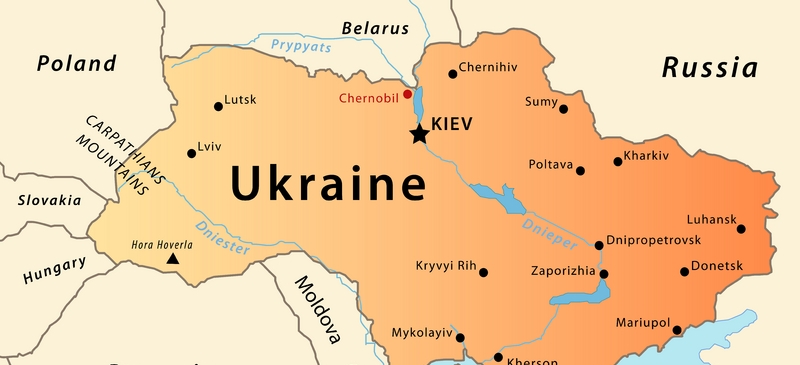
Georgia, Ukraine and energy security
In January 2006 Russia interrupted gas supplies to Ukraine and triggered a short, sharp shock to Europe in its ever-growing dependency on Russian gas. Later that year the EU produced a green paper, including plans for European electricity and gas grids, strategic gas storage, and measures to ensure greater co-operation and mutual support in the event of future crises.
Nothing much happened. Russia convinced some that it was still a reliable supplier, and Germany built on its ‘special relationship’ with Russia in a bilateral rather than European way. The Nord Stream pipeline through the Baltic Sea – which will be more expensive than the overland route through Poland – provided a stark example of this bilateralism. Several other EU countries followed suit with their own bilateral deals with Russia, including Austria with joint ownership of the Baumgarten gas hub, and Italy through pipelines, gas supplies and direct investments.
When Russia invaded parts of Georgia last August, the European reaction was mostly muted, and in Italy’s case very understanding of the Russian position. Little noticed in Europe were the energy consequences: the Caspian states saw the writing on the wall and routed more of their oil and gas north through Russia. Their enthusiasm for Nabucco – the planned gas pipeline via Turkey to Central Europe – diminished.
At the beginning of 2009, an apparent re-run of the Ukrainian interruptions of 2006 began. European politicians reacted slowly, thinking that it would be over in a couple of days and that (thanks to high levels of storage) the effects would be limited. Russia cleverly presented the argument as a commercial dispute – about prices and unpaid bills. Yet the length of the Moscow-Kiev dispute, and the opacity and complexity of the issues under discussion – as well as Vladimir Putin’s televised order for Gazprom to cut off gas destined for Europe – soon dispelled such complacency.
Gazprom appeals to the market when it suits. The company is a political as well as price-discriminating monopolist: discriminating in the prices it pays for gas from the Caspian, using its market power in pricing its pipelines, and discriminating in prices and contracts between Ukraine, Germany, Italy, Belarus, and, of course, its own domestic markets. It now wants a gas OPEC too.
None of this is, or should be, surprising. Russia’s political objective is clear: to use energy as a tool for promoting its interests in its neighbourhood. The economics is broadly rational: Gazprom and Russia are trying to maximise the economic rents from their natural resources, upon which the Russian economy is overwhelmingly dependent. What is surprising is that the EU should have spent the last decade trying to tell the Russians in effect to liberalise, privatize and open up their reserves to foreign companies. This is not only none of the EU’s business, but also not obviously economically sensible for Russia.
Instead, the EU’s challenge is to take Russian policy as given. This means it needs to put its own house in order, and quickly. The key steps have been on the EU’s agenda since the Hampton Court summit in November 2005. The internal electricity and gas networks need to be developed as a matter of urgency, moving away from bilateral pipes and wires between countries and towards a European-wide set of grids. This would make a concrete reality of the desire for mutual support. Strategic gas storage is a second priority, with auctions, clear rules for release and EU co-ordination. Then there is the need for alternative sources of gas supply: here Nabucco is the key.
The opponents argue that Nabucco is expensive and that there may not be enough gas to fill the pipeline. On the former, the costs have just fallen very sharply in the economic downturn – and costs have not been a decisive argument against the Baltic pipeline. On the question of gas supplies, this is much more about politics than economics. As was demonstrated with the support of Presidents Clinton and then Bush for the oil pipeline from Baku to Ceyhan via Tblisi, once political muscle is fully applied, producers feel much more comfortable in facing down Russian purchasers. That there is abundant gas in the Caspian region is not in doubt, on the east and west sides, and of course to the south in Iran and Iraq. Pipelines like Nabucco are never purely commercial: it takes political will and commitment to get them built.
After the second Russian-Ukrainian stand-off, the EU now has another chance to put together a coherent energy policy. There is a risk of the main players viewing that goal with scepticism, and preferring instead to beef up bilateralism with Russia. Germany might take the latest crisis as an excuse to push on even harder with the Baltic pipeline, while Austria and Hungary may prefer Russia’s alternative non-Ukrainian pipelines to Nabucco. So now the EU faces a clear choice: either the big players act together in the face of Russian political pressure, or they take the national route.
Dieter Helm is professor of energy policy at the University of Oxford.
